The RIPE NCC has been assigning 32-bit Autonomous System Numbers since 2007. In this article we're providing an update about the number of 32-bit ASNs being assigned and how many are visible on the Internet.
As mentioned in Assigning 32-bit ASNs published one year ago, 16-bit Autonomous System Numbers (ASNs) are becoming a scarce resource just like 32-bit IP addresses. In 2007, the Internet Engineering Task Force (IETF) addressed this scarcity by developing a new format: 32-bit AS Numbers ( RFC 4893 ), which increased the supply of ASNs to four billion. The RIPE NCC started assigning 32-bit ASNs (or 4-byte ASNs as they are also called) in January 2007 by default. Upon request, however, the RIPE NCC still assigns 16-bit ASNs.
In Figure 1 below, you can see how the RIPE NCC has distributed 16-bit and 32-bit ASNs since 2007 (note: numbers for 2012 only include January-June).
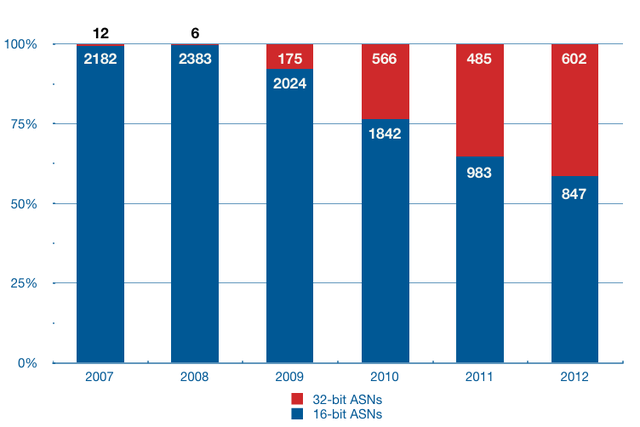
You can see that the percentage of 32-bit ASNs has been growing steadily since 2009.
In Figure 2, you can see that the RIPE NCC assigned 53% of all 32-bit ASNs. The number of 32-bit ASNs assigned by APNIC has gone up significantly since last year, however only a small percentage of these are visible in the global routing table (yet) - see Figure 3.
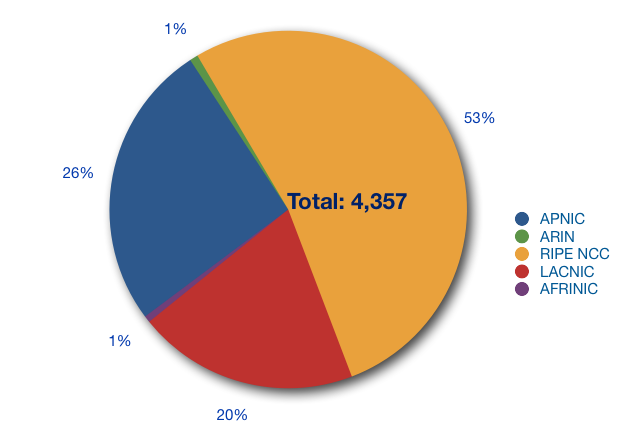
Figure 3 shows the percentage of advertised 32-bit ASNs per region (thanks to Geoff Huston for providing this data). Of a total of 2,574 32-ASNs that are visible in the global routing table, 66% of them have been assigned by the RIPE NCC.
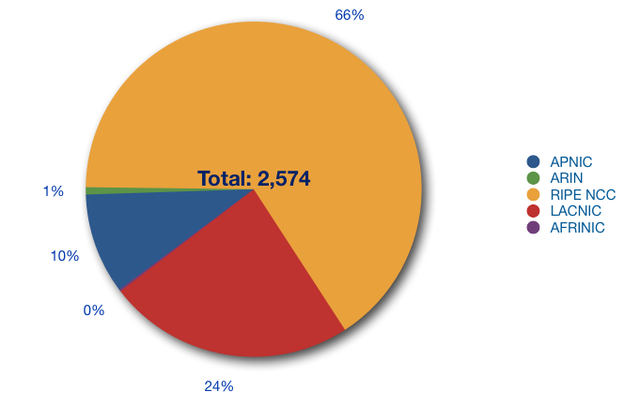
Figure 4 shows advertised versus unadvertised 32-bit ASNs the RIPE NCC service region only.
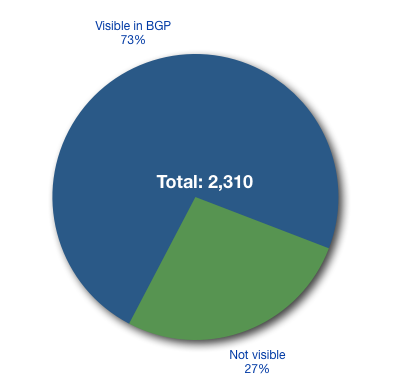
Out of 2,310 assigned 32-bit ASNs, 73% are visible in the global routing table. The remaining 620 are (not yet) visible. This is now comparable to 16-bit ASN visibility which is an improvement compared to last year's figures.
If operators are using up-to-date equipment and software and their upstream provider supports 32-bit ASNs, they should not experience any problems. The RIPE NCC itself started using 32-bit ASNs in 2007 and has not experienced any problems.

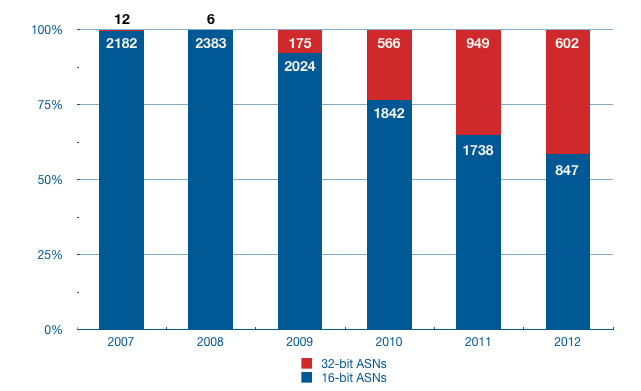



Comments 2
The comments section is closed for articles published more than a year ago. If you'd like to inform us of any issues, please contact us.
Gert Doering •
Is ARIN sticking to 16-bit-AS numbers, or are they just assigning so few ASes these days that they give out neither 16- nor 32-bit AS numbers in significant quantities?
Shane Kerr •
I guess ARIN is going to wait until they're out of 16-bit ASN and then move to 32-bit all at once? That seems like a splendid idea! Much better than gradual adoption!!! :-P